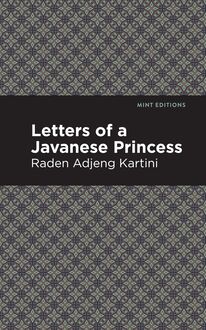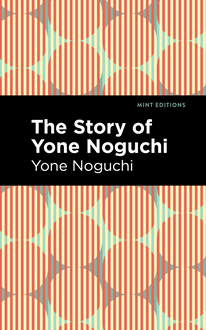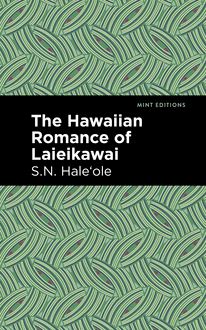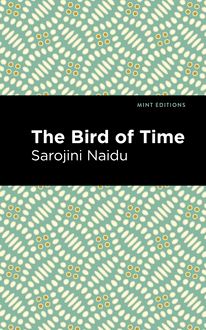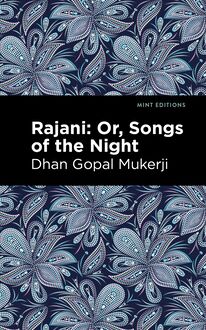-
 Univers
Univers
-
 Ebooks
Ebooks
-
 Livres audio
Livres audio
-
 Presse
Presse
-
 Podcasts
Podcasts
-
 BD
BD
-
 Documents
Documents
-
- Cours
- Révisions
- Ressources pédagogiques
- Sciences de l’éducation
- Manuels scolaires
- Langues
- Travaux de classe
- Annales de BEP
- Etudes supérieures
- Maternelle et primaire
- Fiches de lecture
- Orientation scolaire
- Méthodologie
- Corrigés de devoir
- Annales d’examens et concours
- Annales du bac
- Annales du brevet
- Rapports de stage
La lecture à portée de main
Vous pourrez modifier la taille du texte de cet ouvrage
Découvre YouScribe en t'inscrivant gratuitement
Je m'inscrisDécouvre YouScribe en t'inscrivant gratuitement
Je m'inscrisEn savoir plus
Vous pourrez modifier la taille du texte de cet ouvrage
En savoir plus

Description
The American Diary of a Japanese Girl (1901) is a novel by Yone Noguchi. Published in New York alongside illustrations by Genjiro Yeto, the novel was styled as a fascinating tell-all written by a young Japanese tourist. Composed with the assistance of Léonie Gilmour and Blanche Partington, The American Diary of a Japanese Girl was Noguchi’s first novel and a major departure from his poetry at the time. An 18-year-old Japanese woman going by the name Miss Morning Glory embarks on a journey from her native country to the United States. Accompanied by her uncle, a wealthy industrialist, Morning Glory arrives in San Francisco via steamship. She soon befriends the American wife of a Japanese diplomat, who introduces her to minstrel shows and vaudeville. Left to her own devices, Morning Glory takes over a local cigar shop in Chinatown and begins to assimilate into American life and culture. When she meets Heine, an older poet from Oakland, Morning Glory is inspired to pursue a career as a writer. As she travels across the expansive American landscape with her uncle, she comments on the people and places she encounters along the way. Through her eyes we see the country in a strange new light, perhaps more truth than fiction. With a beautifully designed cover and professionally typeset manuscript, this edition of Yone Noguchi’s The American Diary of a Japanese Girl is a classic of Japanese American literature reimagined for modern readers.
Sujets
Informations
| Publié par | Mint Editions |
| Date de parution | 21 mai 2021 |
| Nombre de lectures | 0 |
| EAN13 | 9781513287492 |
| Langue | English |
| Poids de l'ouvrage | 2 Mo |
Informations légales : prix de location à la page 0,0350€. Cette information est donnée uniquement à titre indicatif conformément à la législation en vigueur.
Extrait
The American Diary of a Japanese Girl
Yone Noguchi
The American Diary of a Japanese Girl was first published in 1901.
This edition published by Mint Editions 2021.
ISBN 9781513282473 | E-ISBN 9781513287492
Published by Mint Editions®
minteditionbooks.com
Publishing Director: Jennifer Newens
Design & Production: Rachel Lopez Metzger
Project Manager: Micaela Clark
Typesetting: Westchester Publishing Services
January, 1902
Ever since my childhood, thy sovereign beauty has been all to me in benevolence and inspiration.
How often I watched thy august presence in happy amazement when thou didst pass along our Tokio streets! What a sad sensation I had all through me when thou wert just out of sight! If thou only knewest, I prayed, that I was one of thy daughters! I set it in my mind, a long time ago, that anything I did should be offered to our mother. How I wish I could say my own mother! Mother art thou, heavenly lady!
I am now going to publish my simple diary of my American journey.
And I humbly dedicate it unto thee, our beloved Empress, craving that thou wilt condescend to acknowledge that one of thy daughters had some charming hours even in a foreign land.
Morning Glory
C ONTENTS
B EFORE I S AILED
O N THE O CEAN
I N A MERIKEY
B EFORE I S AILED
T OKIO , Sept. 23rd
My new page of life is dawning.
A trip beyond the seas—Meriken Kenbutsu—it’s not an ordinary event.
It is verily the first event in our family history that I could trace back for six centuries.
My to-day’s dream of America—dream of a butterfly sipping on golden dews—was rudely broken by the artless chirrup of a hundred sparrows in my garden.
“Chui, chui! Chui, chui, chui!”
Bad sparrows!
My dream was silly but splendid.
Dream is no dream without silliness which is akin to poetry.
If my dream ever comes true!
24th
The song of gay children scattered over the street had subsided. The harvest moon shone like a yellow halo of “Nono Sama.” All things in blessed Mitsuho No Kuni—the smallest ant also—bathed in sweet inspiring beams of beauty. The soft song that is not to be heard but to be felt, was in the air.
’Twas a crime, I judged, to squander lazily such a gracious graceful hour within doors.
I and my maid strolled to the Konpira shrine.
Her red stout fingers—like sweet potatoes—didn’t appear so bad tonight, for the moon beautified every ugliness.
Our Emperor should proclaim forbidding woman to be out at any time except under the moonlight.
Without beauty woman is nothing. Face is the whole soul. I prefer death if I am not given a pair of dark velvety eyes.
What a shame even woman must grow old!
One stupid wrinkle on my face would be enough to stun me.
My pride is in my slim fingers of satin skin.
I’ll carefully clean my roseate finger-nails before I’ll land in America.
Our wooden clogs sounded melodious, like a rhythmic prayer unto the sky. Japs fit themselves to play music even with footgear. Every house with a lantern at its entrance looked a shrine cherishing a thousand idols within.
I kneeled to the Konpira god.
I didn’t exactly see how to address him, being ignorant what sort of god he was.
I felt thirsty when I reached home. Before I pulled a bucket from the well, I peeped down into it. The moonbeams were beautifully stealing into the waters.
My tortoise-shell comb from my head dropped into the well.
The waters from far down smiled, heartily congratulating me on going to Amerikey.
25th
I thought all day long how I’ll look in ’Merican dress.
26th
My shoes and six pairs of silk stockings arrived.
How I hoped they were Nippon silk!
One pair’s value is 4 yens.
Extravagance! How dear!
I hardly see any bit of reason against bare feet.
Well, of course, it depends on how they are shaped.
A Japanese girl’s feet are a sweet little piece. Their flatness and archlessness manifest their pathetic womanliness.
Feet tell as much as palms.
I have taken the same laborious care with my feet as with my hands. Now they have to retire into the heavy constrained shoes of America.
It’s not so bad, however, to slip one’s feet into gorgeous silk like that.
My shoes are of superior shape. They have a small high heel.
I’m glad they make me much taller.
A bamboo I set some three Summers ago cast its unusually melancholy shadow on the round paper window of my room, and whispered, “Sara! Sara! Sara!”
It sounded to me like a pallid voice of sayonara.
(By the way, the profuse tips of my bamboo are like the ostrich plumes of my new American hat.)
“Sayonara” never sounded before more sad, more thrilling.
My good-bye to “home sweet home” amid the camellias and white chrysanthemums is within ten days. The steamer “Belgic” leaves Yokohama on the sixth of next month. My beloved uncle is chaperon during my American journey.
27th
I scissored out the pictures from the ’Merican magazines.
(The magazines were all tired-looking back numbers. New ones are serviceable in their own home. Forgotten old actors stray into the villages for an inglorious tour. So it is with the magazines. Only the useless numbers come to Japan, I presume.)
The pictures—Meriken is a country of woman; that’s why, I fancy, the pictures are chiefly of woman—showed me how to pick up the long skirt. That one act is the whole “business” of looking charming on the street. I apprehend that the grace of American ladies is in the serpentine curves of the figure, in the narrow waist.
Woman is the slave of beauty.
I applied my new corset to my body. I pulled it so hard.
It pained me.
28th
My heart was a lark.
I sang, but not in a trembling voice like a lark, some slices of school song.
I skipped around my garden.
Because it occurred to me finally that I’ll appear beautiful in my new costume.
I smiled happily to the sunlight whose autumnal yellow flakes—how yellow they were!—fell upon my arm stretched to pluck a chrysanthemum.
I admit that my arm is brown.
But it’s shapely.
29th
English of America—sir, it is light, unreserved and accessible—grew dear again. My love of it returned like the glow in a brazier that I had watched passionately, then left all the Summer days, and to which I turned my apologetic face with Winter’s approaching steps.
Oya, oya, my book of Longfellow under the heavy coat of dust!
I dusted the book with care and veneration as I did a wee image of the Lord a month ago.
The same old gentle face of ’Merican poet—a poet need not always to sing, I assure you, of tragic lamentation and of “far-beyond”—stared at me from its frontispiece. I wondered if he ever dreamed his volume would be opened on the tiny brown palms of a Japan girl. A sudden fancy came to me as if he—the spirit of his picture—flung his critical impressive eyes at my elaborate cue with coral-headed pin, or upon my face.
Am I not a lovely young lady?
I had thrown Longfellow, many months ago, on the top shelf where a grave spider was encamping, and given every liberty to that reticent, studious, silver-haired gentleman Mr. Moth to tramp around the “Arcadie.”
Mr. Moth ran out without giving his own “honourable” impression of the popular poet, when I let the pages flutter.
Large fatherly poet he is, but not unique. Uniqueness, however, has become commonplace.
Poet of “plain” plainness is he—plainness in thought and colour. Even his elegance is plain enough.
I must read Mr. Longfellow again as I used a year ago reclining in the Spring breeze,—“A Psalm of Life,” “The Village Blacksmith,” and half a dozen snatches from “Evangeline” or “The Song of Hiawatha” at the least. That is not because I am his devotee—I confess the poet of my taste isn’t he—but only because he is a great idol of American ladies, as I am often told, and I may suffer the accusation of idiocy in America, if I be not charming enough to quote lines from his work.
30th
Many a year I have prayed for something more decent than a marriage offer.
I wonder if the generous destiny that will convey me to the illustrious country of “woman first” isn’t the “something.”
I am pleased to sail for Amerikey, being a woman.
Shall I have to become “naturalized” in America?
The Jap “gentleman”—who desires the old barbarity—persists still in fancying that girls are trading wares.
When he shall come to understand what is Love!
Fie on him!
I never felt more insulted than when I was asked in marriage by one unknown to me.
No Oriental man is qualified for civilisation, I declare.
Educate man, but—beg your pardon—not the woman!
Modern gyurls born in the enlightened period of Meiji are endowed with quite a remarkable soul.
I act as I choose. I haven’t to wait for my mamma’s approval to laugh when I incline to.
Oct. 1st
I stole into the looking-glass—woman loses almost her delight in life if without it—for the last glimpse of my hair in Japan style.
Butterfly mode!
I’ll miss it adorning my small head, while I’m away from home.
I have often thought that Japanese display Oriental rhetoric—only oppressive rhetoric that palsies the spirit—in hair dressing. Its beauty isn’t animation.
I longed for another new attraction on my head.
I felt sad, however, when I cut off all the paper cords from my hair.
I dreaded that the American method of dressing the hair might change my head into an absurd little thing.
My lengthy hair languished over my shoulders.
I laid me down on the bamboo porch in the pensive shape of a mermaid fresh from the sea.
The sportive breezes frolicked with my hair. They must be mischievous boys of the air.
I thought the reason why Meriken coiffure seemed savage and without art was mainly because it prized more of natural beauty.
Naturalness is the highest of all beauties.
Sayo shikaraba!
Let me learn the beauty of American freedom, starting with my hair!
Are you sure it’s not slovenliness?
Woman’s slovenliness is only forgiven where no gentleman is born.
2nd
Occasional forgetfulness, I venture to say, is one of woman’s charms.
But I fear too many l
-
 Univers
Univers
-
 Ebooks
Ebooks
-
 Livres audio
Livres audio
-
 Presse
Presse
-
 Podcasts
Podcasts
-
 BD
BD
-
 Documents
Documents
-
Jeunesse
-
Littérature
-
Ressources professionnelles
-
Santé et bien-être
-
Savoirs
-
Education
-
Loisirs et hobbies
-
Art, musique et cinéma
-
Actualité et débat de société
-
Jeunesse
-
Littérature
-
Ressources professionnelles
-
Santé et bien-être
-
Savoirs
-
Education
-
Loisirs et hobbies
-
Art, musique et cinéma
-
Actualité et débat de société
-
Actualités
-
Lifestyle
-
Presse jeunesse
-
Presse professionnelle
-
Pratique
-
Presse sportive
-
Presse internationale
-
Culture & Médias
-
Action et Aventures
-
Science-fiction et Fantasy
-
Société
-
Jeunesse
-
Littérature
-
Ressources professionnelles
-
Santé et bien-être
-
Savoirs
-
Education
-
Loisirs et hobbies
-
Art, musique et cinéma
-
Actualité et débat de société
- Cours
- Révisions
- Ressources pédagogiques
- Sciences de l’éducation
- Manuels scolaires
- Langues
- Travaux de classe
- Annales de BEP
- Etudes supérieures
- Maternelle et primaire
- Fiches de lecture
- Orientation scolaire
- Méthodologie
- Corrigés de devoir
- Annales d’examens et concours
- Annales du bac
- Annales du brevet
- Rapports de stage



